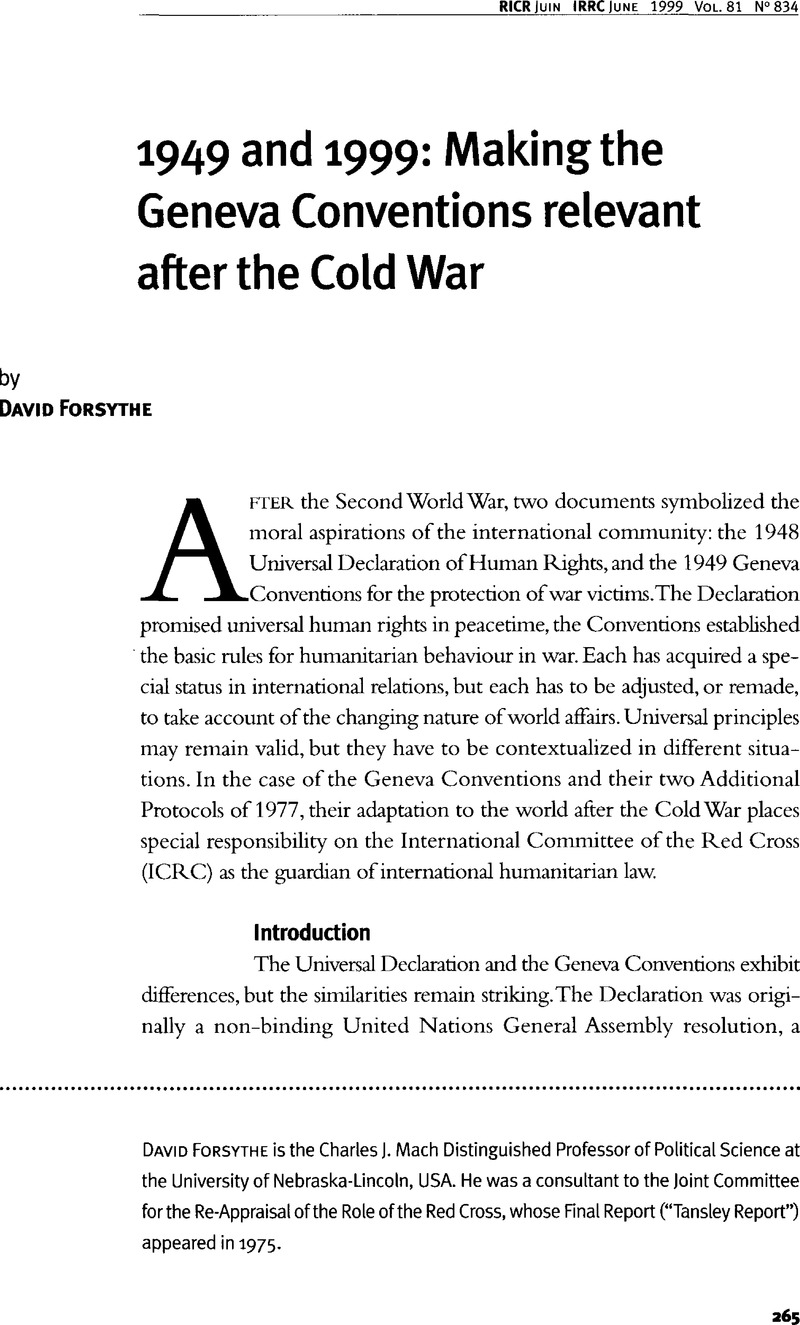Published online by Cambridge University Press: 19 April 2010

1 Henkin, Louis, «The Universal Declaration andthe U.S. Constitution», Political Science: The Magazine of the American Political Science Association, September 1998, pp. 512–515.Google Scholar
2 For the /Avenir statement see «InternationalCommittee of the Red Cross, ‘Avenir’ Study: Strategic content«, IRRC, No. 322, March 1998, pp. 127–136. For the UN's Agenda for Peace, see »Report of the Secretary-General pursuant to the statement adopted by the Summit Meeting of the Security Council on 31 January 1992», United Nations, New York, 1992.
3 See Barber, Benjamin R., jihad vs. McWorld: How Globalism and Tribalism Are Reshaping the World, Ballantine Books, New York, 1996.Google Scholar
4 IRRC, No. 324, September 1998.
5 See further Moorehead, Caroline, Dunant's Dream: War, Switzerland, and the History of the Red Cross, HarperCollins, New York, 1998.Google Scholar
6 Tansley, Donald D., Final Report: An Agenda for Red Cross, Henry Dunant Institute, Geneva, 1975.Google Scholar
7 See, for example, Maren, Michael, The Road man to Hell: The Ravaging Effects of Foreign Aid and International Charity, The Free Press, New York, 1997.Google Scholar
8 See, for example, Brauman, Rony, «Refugee camps, population transfers, and NGOs», in Moore, Jonathan (ed.), Hard choices: Moral Dilemmas in Humanitarian Intervention, Rowman & Littlefield, Lanham, MD, 1998, pp. 177–194Google Scholar, and Roberts, Adam, «Humanitarian war: Military intervention and human rights», International Affairs, No. 69, 3 July 1993, p. 429 ss.Google Scholar
9 Jonathan Moore (ed.), Hard Choices, ibid.
10 Michael Ignatieff, «The stories we tell«, in Hard Choices, ibid., pp. 287–302.
11 See further Alexander Natsios, U.S. Foreign Policy and the Four Horsemen of the Apocalypse: Humanitarian Relief in Complex Emergencies, Praeger, Westport, 1997.Google Scholar